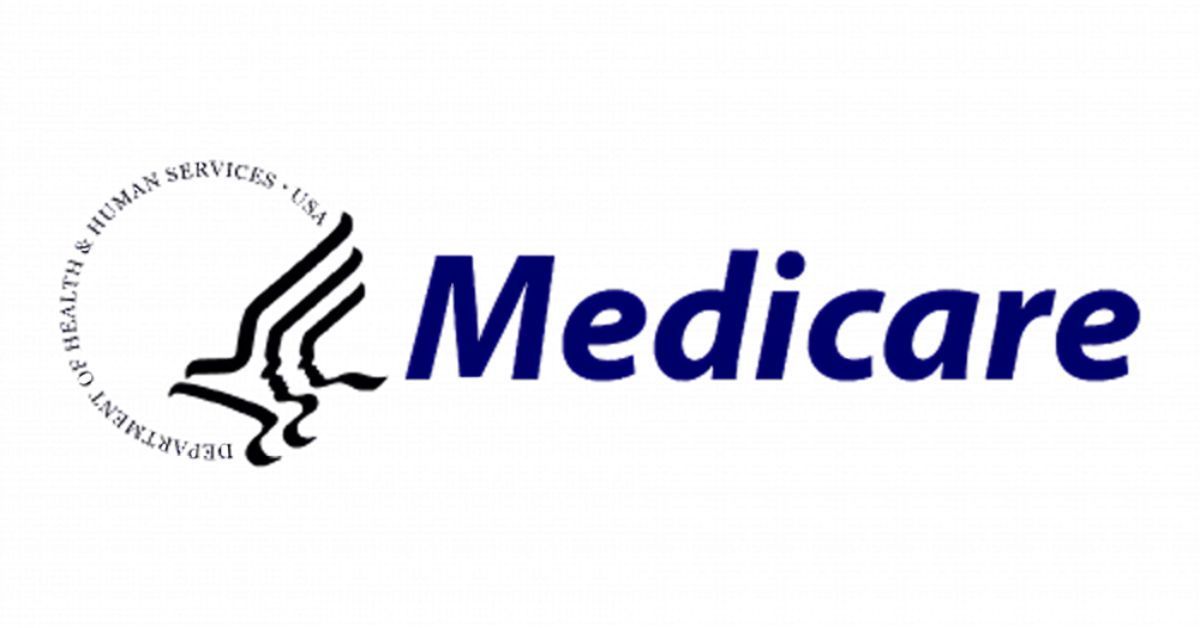Seniors' Guide to Medicare in New Jersey: Finding the Right Agent for You

As we age, our healthcare needs change as well. For seniors, one significant concern is ensuring access to quality healthcare without hardships. This is where Medicare steps in.
According to the Centers for Medicare and Medicaid Services (CMS), over 65 million people are enrolled in Medicare. Of those figures, 33 million are enrolled in Original Medicare (Parts A and B).
Since this program provides health coverage to millions of people in the US, learning the basics of Medicare insurance is crucial.
At Leonard Financial Solutions, we understand that knowing the ins and outs of Medicare can feel overwhelming. In New Jersey, finding the right Medicare is key to making the process simpler and more manageable.
Are you still confused about the key Medicare enrollment dates or different coverage options? With the help of a licensed Medicare agent in New Jersey, you can explore different plans, like Medicare Advantage or Medigap policies.
Whether you’re approaching your 65th birthday or already enrolled in Medicare, this blog serves as your ultimate guide to understanding and maximizing your benefits.

Key Takeaways
- Medicare subsidizes healthcare services for seniors aged 65 and younger people with disabilities and end-stage renal disease.
- Medicare is divided into four components: Medicare Part A, Part B, Part C (HMOs and PPOs), and Part D (prescription drugs).
- A Medicare agent can help you understand and choose the best Medicare plans.
- Get assistance in selecting the best plan tailored to your healthcare needs.
What is Medicare?

Administered by the CMS, Medicare is a government health insurance program for individuals aged 65 and older. Some younger people with some disabilities may also qualify for Medicare. This includes those with end-stage renal disease and amyotrophic lateral sclerosis (ALS).
Medicare has four parts, each offering different types of coverage at different costs. If you’re turning 65, you’ll become Medicare eligible and can start exploring your Medicare benefits.
It’s important to consider which coverage is right for you, and how much you may pay for that coverage.
Why Medicare Matters
If you’re planning for retirement, a part of your savings will likely go toward medical bills.
According to the 2023 Fidelity Retiree Health Care Cost Estimate, a retired individual at age 65 will likely spend around $157,500 on healthcare expenses. This estimate shows that rising medical expenses might deplete your retirement savings faster.
That is why Medicare insurance is a big help for seniors.
As healthcare expenses continue to rise, Medicare provides financial protection by reducing out-of-pocket expenses. It allows you to access necessary medical services that would otherwise be hundreds of thousands of dollars.
How Medicare Works

If you’re still confused about Medicare insurance, let’s simplify things using a puzzle analogy.
Think of Medicare like a four-piece puzzle. Each piece represents a different part of the program. There’s Part A for inpatient hospital coverage, Part B for outpatient care, Part C for Medicare Advantage plans, and Part D for prescription drugs.
Once all the pieces fit together, you can see the full picture of your healthcare coverage. Understanding how these pieces fit together can help you make informed decisions.
Now, you might be wondering: Is private insurance included in Medicare? The answer is no. Think of private insurance as a different puzzle. Medicare covers an individual only, whereas private insurance may extend coverage to dependents and family members.
But keep in mind that Medicare Advantage and Medigap plans are offered by private companies. While these options are provided by private insurers, they work alongside Medicare to provide additional benefits rather than being part of it.
Does Leonard Financial Solutions Only Serve Moorestown, NJ?
While Jonathan is based in Moorestown, he extends his expertise throughout the entire state New Jersey. Leonard Financial Solutions proudly offers comprehensive financial and retirement planning services across the state, ensuring residents statewide can access top-tier financial guidance.
Parts of Medicare Explained
Medicare in New Jersey includes several parts that provide different types of coverage. Let’s discuss them one by one:
Part A & B: Original Medicare

Think of Medicare Part A as your safety net for when you need hospital care. It mainly covers hospital stays, skilled nursing facility care, home health care, and hospice care.
If you worked and paid Medicare taxes for at least 10 years, you don’t have to worry about a premium. A Medicare advisor can help you understand the benefits and costs of Parts A and B.
On the other hand, Medicare Part B covers doctor visits, outpatient care, and X-rays. It also covers ambulance services and certain medical equipment.
Unlike Part A, Part B is voluntary and comes with a monthly premium. In 2024, the standard monthly premium for Medicare Part B is $174.70.
Since Part A doesn’t cover all medical services, Part B helps fill the gaps by addressing the outpatient needs of beneficiaries. Both plans are intended to complement each other to provide more comprehensive healthcare coverage.
Part C: Medicare Advantage

If Original Medicare isn’t enough for your medical needs, consider Medicare Part C. Also known as Medicare Advantage plans, Part C is offered by private companies approved by Medicare.
If you join a Part C plan, it will provide benefits included in both Parts and B. Aside from hospital and medical coverage, Medicare Advantage plans provide extra benefits like vision, dental, and hearing services.
While Medicare Advantage offers more comprehensive coverage, it has network restrictions and other limitations. This means beneficiaries may need to use healthcare providers within the plan’s network to receive full benefits.
It’s crucial to check if your preferred doctors and hospitals are in the plan’s network. You might need referrals to see specialists, so be sure to check the specific rules of each plan.
Part D: Prescription Drug Plans

Medicare Part D plays a crucial role in ensuring seniors have access to affordable prescription medications. Similar to Part C, this prescription drug coverage program is typically offered by private insurance companies approved by Medicare.
As the name suggests, Medicare Part D helps beneficiaries pay for prescription drugs and reduces out-of-pocket costs. These plans can be added to Original Medicare (Parts A and B) or a Medicare Advantage Plan without drug coverage.
Each Medicare Part D plan has a list of covered drugs, known as a formulary. If your drug is not on the formulary, you’ll have to request an exception, pay out of pocket, or file an appeal.
Like the other Medicare parts, enrollment in Part D is optional but advisable for people who require ongoing prescription medications.
Need help in exploring your Medicare coverage options? This interactive tool on Medicare.gov can help you find the prescription drug plan that works for you. You can use it to assess your current coverage or find Part D plans available in your ZIP code.
Medicare Enrollment Process and Periods

Enrollment in Medicare insurance typically begins at age 65, with options for those with certain disabilities. The enrollment process begins three months before you turn 65 and ends three months after your 65th birthday.
In general, you only need to sign up for Part A and Part B once. If you miss your initial enrollment period or want to switch plans, there are several annual Medicare open enrollment periods.
Knowing when and how to enroll in Medicare is important to avoid late enrollment penalties. You can get assistance with the enrollment process either online or in person, depending on your preference. This section will walk you through everything you need to know about Medicare enrollment periods:
Initial Enrollment Period (IEP)
This is your first chance to enroll in Medicare insurance. The IEP lasts for 7 months, starting 3 months before your 65th birthday, and ending 3 months after the month you turn 65.
For example, if your birthday is in June, your IEP starts in March and ends in September. During this period, you can sign up for Original Medicare, Medicare Advantage Plans, and prescription drug plans.
To enroll, you can apply online through the Social Security Administration (SSA) website, call the SSA, or visit a local SSA office. It’s wise to start early to ensure your coverage begins promptly.
Remember: The date your coverage starts depends on which month you sign up during your Initial Enrollment Period. Coverage always starts on the first of the month.
If you sign up in the three months before your birth month: Your coverage starts on the first day of the month you turn 65. For example, if you turn 65 on June 15th and you signed up in March, April, or May, your coverage starts on June 1st.
If you sign up during your birth month: Your coverage starts on the first day of the following month. For example, if you turn 65 in June and you signed up in June, your coverage starts on July 1st.
If you sign up in the three months after your birth month: Your coverage starts on the first day of the following month. For example, if you sign up in July, August, or September, your coverage starts on the first day of the month after enrollment.
It’s important to sign up for Medicare when you’re first eligible. Missing your IEP may result in late enrollment penalties and higher premiums for Part B and D.
General Enrollment Period (GEP)
Did you miss your Initial Enrollment Period? There is a solution. You can also sign up for Part A and/or Part B between January 1st and March 31st each year during the General Enrollment Period.
Maybe you didn’t realize you needed to enroll, or perhaps life got in the way. Whatever the reason, the GEP is your opportunity to make sure you have the coverage you need.
Once you’ve enrolled during the GEP, your Medicare coverage begins on July 1st of the same year. Keep in mind that there may be a late enrollment penalty, which can result in higher premiums. Before enrolling, make sure you’re aware of this information.
Annual Enrollment Period (AEP)
Life changes, and so do your healthcare needs. Fortunately, the Annual Enrollment Period for Medicare exists to make sure your plan still fits your current situation.
The AEP runs from October 15th to December 7th each year. This is your chance to review, update, and make changes to your Medicare insurance coverage. During the AEP, you can make several changes to your Medicare coverage, such as:
- Switch from Original Medicare to a Medicare Advantage Plan or vice versa
- Change from one Medicare Advantage Plan to another.
- Enroll or switch to a new Medicare Part D prescription drug plan
If you choose to make a change during the AEP, your new coverage will take effect on January 1st of the following year.
Medicare Advantage Open Enrollment Period (MA OEP)
If you’re already enrolled in a Medicare Advantage Plan, you have another chance to adjust your coverage between January 1st and March 31st each year. During this time, you can:
- Switch to a different Medicare Advantage Plan.
- Drop your Medicare Advantage Plan and return to Original Medicare (Parts A and B).
- Enroll in a separate Medicare drug plan.
In whichever case, your new coverage will start on the first day of the month after the plan gets your request.
Special Enrollment (SEP)
Several circumstances happen that allow you to sign up for Medicare outside of the yearly OEP. That’s where the Special Enrollment Period (SEP) comes in. Certain life events qualify you for a SEP:
- You moved to a new address outside of your plan’s service area.
- You recently joined or dropped from an employer-sponsored plan.
- You lost your health coverage.
In cases like those above, you may be able to join, switch, or drop a Medicare Advantage or prescription drug plan. You can do this outside the basic enrollment periods.
Take advantage of SEPs, so you can avoid unnecessary fees and gaps in coverage. Stay informed by checking the Medicare website or consulting with a local NJ Medicare agent.
Tips for a Smooth Medicare Enrollment Process
Here are some tips to help you navigate the enrollment process smoothly:
Mark Your Calendar
Keep track of important dates like your IEP, GEP, and OEP. We remember important dates like birthdays and anniversaries. So, mark your Medicare enrollment periods as well.
Start Early
Don't wait until the last minute to enroll in Medicare. Give yourself plenty of time to review and compare plans.
Review Your Options
Medicare insurance can be confusing, so take time to understand the different parts and what they cover.
Seek Help If Needed
If you’re unsure about any part of the process, don’t hesitate to reach out to a Medicare agent. The State Health Insurance Assistance Program (SHIP) also offers free counseling to Medicare beneficiaries and their families
Stay Informed
Keep an eye out for any notifications or updates from Medicare about changes to your current plan or new plan options.
Choosing the Right Medicare Plan for Your Retirement Needs

A Medicare advisor can help you choose the right Medicare plan.
Selecting the right Medicare plan is a big decision, and it’s essential to find one that suits your specific needs. Here are some factors to consider during your decision-making process:
Assess Your Health Needs
Think about your healthcare needs. Do you visit the doctor frequently or do you need specialist care?
If you visit doctors often, you want coverage that includes your regular doctors and hospitals. Your health needs will guide you in choosing the right Medicare insurance plan.
Consider Your Budget
To get the best Medicare plan, you need to compare the benefits and costs. Look at what each plan offers. Some plans cover more services, but they might also have higher premiums.
Before the enrollment period, create a list of what you need most. It might include things like prescription drugs, hospital stays, or preventive care. Then, compare plans to see which ones offer the best coverage for your needs. Doing this ensures that you can afford the monthly costs without strain.
Medicare Advantage Plans Detailed
Medicare Advantage Plans offer a variety of options for individuals, providing different networks and benefits.
Health Maintenance Organization (HMO) and Preferred Provider Organization (PPO) plans are the two most common types of Medicare Advantage Plans.
HMO vs PPO Plans

HMO Plans require you to use doctors and hospitals within the plan’s network. You will need a primary care doctor, and you’ll often need a referral to see a specialist. Using in-network providers helps keep costs lower. A Medicare broker can help you choose between HMO and PPO plans by providing expert advice tailored to your healthcare needs.
Let’s say you need to visit a heart specialist within the HMO network. To schedule an appointment, you’ll need to consult with your primary care doctor and request a referral. Once you’ve obtained the referral, the visit will be covered by your plan with a small copayment.
On the other hand, PPO Plans offer more flexibility with a wider range of healthcare providers. You can see doctors or specialists outside of your network without a referral. However, PPO plans typically have higher premiums and potential out-of-pocket costs.
Medicare Supplement Plans: What New Jersey Seniors Need to Know
Medicare Supplement or Medigap are policies sold by private companies. These plans help pay some healthcare costs that Original Medicare does not cover, like copayments, coinsurance, and deductibles.
When choosing a Medicare Supplement policy, consider your health care needs and budget. Think about how often you visit the doctor and whether you travel outside the US. If you travel frequently, Medigap Plan C is a good option.
Another tip is to check if the insurance company offers a no-cost look-back period. This can let you try out the policy without a long-term commitment.
Additional Medicare Benefits and Services
Dental and Vision Coverage

Medicare plans often include dental and vision coverage. For example, you may get routine dental exams, cleanings, and even fillings. Vision coverage could include eye exams, glasses, or contact lenses.
To find what suits you best, check with your New Jersey Medicare agent. They can explain what’s available in your area and help you understand your options.
Wellness Programs
Besides dental and vision coverage, some plans provide gym memberships. They also provide transportation to medical appointments or meal delivery after a hospital stay.
You could also access wellness programs that include exercise classes, nutrition advice, and health screenings.
Depending on your needs, these additional benefits can make a real difference.
We're Here for Your Medicare Needs
Navigating the complexities of Medicare can be overwhelming, but it doesn’t have to be. At Leonard Financial Solutions, we specialize in guiding seniors through the maze of Medicare options.
Leveraging our years of experience in the Medicare industry, our team has the knowledge and skills to help you make the best decisions. We'll explain how different plans work, the costs involved, and what you can expect about coverage.
With Leonard Financial Solutions, you’re not just getting a Medicare plan. You’re gaining a trusted partner committed to your health and well-being. Our personalized approach ensures your specific health requirements and financial situation are considered.
Contact us today to schedule a phone consultation. Together, we will take the first step toward a more secure and stress-free future!
FAQs
LEONARD FINANCIAL SOLUTIONS
Start Planning Your Secure Retirement Today
We are dedicated to helping you achieve a safe and secure retirement. Whether you're in Moorestown, New Jersey, or anywhere in the United States, our independent fiduciary team is here to provide expert guidance tailored to your needs.
